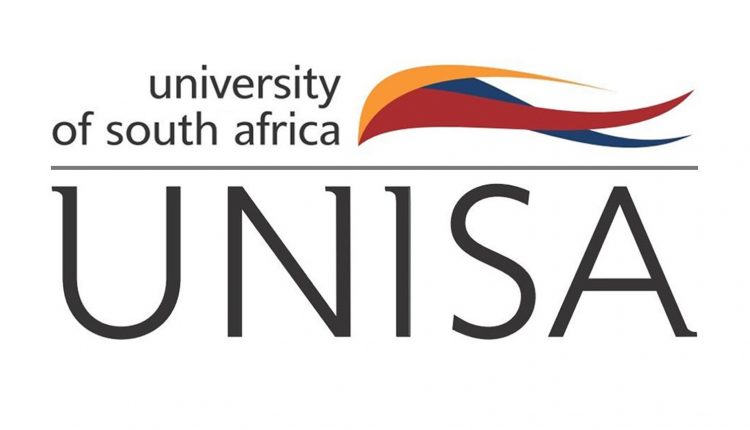University of South Africa: Reshaping the agenda of distance education
As an incubator for digital innovation in teaching and learning, ADOVH is self-sustained through the DHET University Capacity Development Programme (UCDP) grant running from 2021 to 2023 to enhance student support and the fourth industrial revolution (4IR) readiness in an Open, Distance and eLearning (ODeL) environment.
As a hub, ADOVH creates a space for individuals with expert knowledge and skills to drive digital innovation and transformation in teaching, learning and student support.
On 29 April 2022, members of the ADOVH project met with Prof Humphrey Mogashoa, the Acting Executive Director of the DTSFL, to evaluate and review the first year of its DHET-UCDP project deliverables.
ADOVH has identified six key activities to fulfil its project mandate of preparing students to be digitally ready for a rapidly ODeL environment such as Unisa.
The first activity seeks to establish a baseline assessment of the digital readiness of the university’s undergraduate students. A total number of 4 080 students participated in an online survey assessing their skills in digital fluency, complex problem solving, social emotional intelligence, design thinking, critical thinking, creativity and cognitive flexibility.
ADOVH’s findings indicated that profiling students “generally” at Unisa is problematic. Students in the cities with access to technology and connectivity have acquired rudimentary levels of basic digital skills and proficiency. In contrast, students in the rural and semi-rural areas struggle with the pace of technology integration in the university’s teaching and learning environment. In the latter half of this year, ADOVH will conduct focus group sessions with students in the marginalised semi-rural and rural areas to capture their voices as part of the baseline assessment.
ADOVH’s second activity focuses on developing a Gamification Learning Programme (GLP) to equip academics with skills for integrating gamified teaching and learning elements into curriculum design. The first development phase focuses on creating a gamified digital literacy Massive Open Online Course (MOOC) as a prototype and mapping the processes, which could then be formulated into a GLP. The prototype seeks to motivate students by incorporating gamified elements, promote online engagement, interactions, critical thinking, and problem-solving skills, achieve learning outcomes through practical and learning tasks, and contextualise gamification in and for the African context. A key element in this prototype is the integration of indigenous knowledge. The prototype was developed using a cost-efficient approach by integrating open-source apps and frameworks with easy integration into the Moodle LMS.
ADOVH’s third activity focuses on designing training interventions using MOOCs. The first MOOC which is the Basic Skills in myModules on myUnisa was aimed at preparing students for the upgraded myUnisa. ADOVH had 97 180 students participate in the MOOC with approximately 649 490 activities completed.
To further support Unisa’s students, ADOVH developed mock exams where students could familiarise themselves with the exam formats and proctoring tools. ADOVH had 89 304 students complete the mock exams, with a total of 2.9 million activities (multiple opportunities to take the mock exams) completed.
To foster a culture of MOOCs in the African context, ADOVH employed a synchronous MOOC (SMOOCs) approach, which saw the integration of live webinars and student blast sessions (ie live question and answer support sessions).
ADOVH’s fourth activity focus on developing Digital Learning Objects (DLOs) to provide students with quick knowledge transfer through short multimedia clips. To assist students with the digital skills needed to complete online assessments, ADOVH developed a series of DLOs that focuses on types of assessments, navigating the online assessment platform, understanding proctoring tools, academic integrity, and students with special needs. ADOVH had a total of 54 000 views of these DLOs hosted on YouTube.
The fifth activity of ADOVH focuses on developing a Virtual Assistant (Chatbot) that can provide students with support on demand through integrated Artificial Intelligence (AI) and Machine Learning (ML). ADOVH has partnered with Digify Africa and Techsys Digital to explore a proof of concept for a Virtual Assistant hosted on a dedicated ADOVH training LMS, with the potential of running on MS Teams or dedicated WhatsApp line. The main goal of this development is to optimise student support by automating responses based on FAQs.
The sixth activity focuses on analysing student learning analytics. In 2021, ADOVH, in collaboration with the Student Retention Unit (SRU), developed four dashboards that analyses at-risk students, repeating students, FYE MOOC students and at-risk modules.
Once more, ADOVH hosted a working session with the Deputy Director of Governance, Reporting and Support Nkululeko Nzimande and the Director of Business Intelligence Letlhogonolo Marumolwa, on ways to collaborate in evaluating the impact of ADOVH’s training interventions on student throughput and retention.
In response to ADOVH’s deliverables in the first year of the DHET UCDP grant, Mogashoa highlighted the critical role that ADOVH plays in driving innovation and transformation in teaching, learning and student support.
Mogashoa also emphasised the importance of digital innovation based on a value proposition for the university as opposed to ‘nice-to-have’, the need to contextual digital innovation in the African context, and the implementation of innovation that is responsive to Unisa’s student profile.
To conclude, the ADOVH project is advancing new paths in digital innovation and transformation in teaching, learning, and student support.

